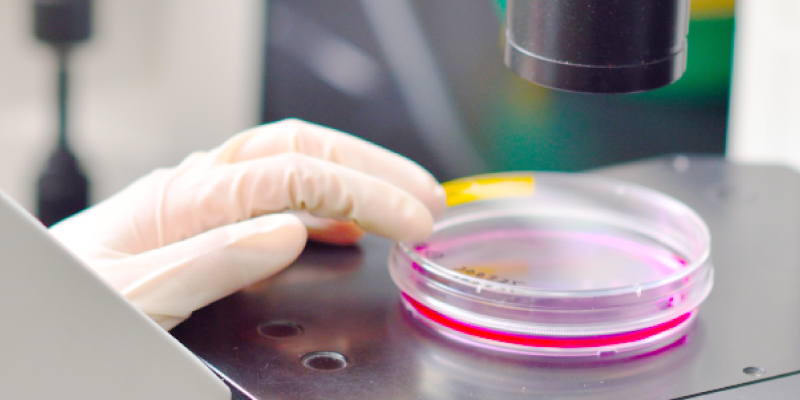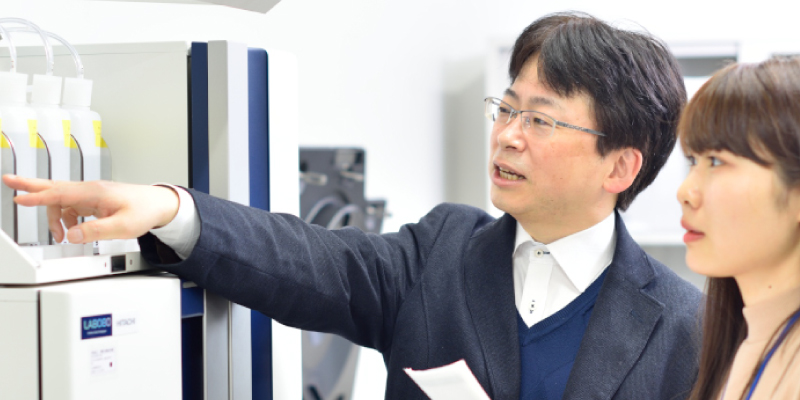場 所:命北館4F 中講義室6
第109回バイオセミナーは、永井信夫先生のホストにより、ホルモン研究でご活躍中の東京大学大学院・坪井貴司先生、及び、神経可塑性に係る細胞機能に関する研究でご活躍のUniversity of Exeter(英国)のRobert Pawlak先生のお二人にお越しいただき、1時間ずつご講演いただきます。
テーマ1:新規分子スパイプローブによるホルモン分泌機能の可視化解析
講 師:東京大学大学院総合文化研究科広域科学専攻生命環境科学系 准教授
坪井 貴司 先生
【講演内容】
開口放出は、膵β細胞からのインスリン分泌や小腸内分泌細胞からのインクレチン分泌など、内分泌細胞がホルモンを分泌する際に用いられる機構であり、「時空間的」に厳密に制御されている。内分泌細胞が、細胞外の環境変化に素早く応答し、適切なホルモン分泌を行うためには、(1)細胞外の環境変化(例えば、血中グルコース濃度変化や管腔内栄養素濃度変化等)を感受し、(2)細胞内へその環境変化情報を伝達し、(3)細胞内に貯蔵されているホルモン分泌顆粒を細胞膜方向へ輸送し、細胞膜と融合させる、という3つの素過程が必要である。しかし、各素過程の詳細な分子メカニズムについては、あまり解明されていないのが現状である。
そこで、私たちの研究室では、内分泌細胞の開口放出における3つの素過程を選択的に可視化解析できる分子スパイプローブを新たに開発し、ライブイメージング可視化解析に取り組んできた。本セミナーでは、この新規分子スパイプローブを用いた可視化解析で新たに分かった内分泌細胞の開口放出制御機構について、議論したい。
テーマ2:The role of amygdala extracellular proteases in controlling anxiety and fear
講 師: Professor Robert Pawlak
(Department of Functional Cell Biology, Peninsula College of Medicine and Dentistry, University of Exeter)
【講演内容】
Stress can trigger maladaptive neuronal plasticity and lead to high anxiety. Anxiety disorders affect about 25% of adults at least once in their lives and generate an enormous personal, social and economic burden.
Extracellular proteases such as the tissue plasminogen activator, plasmin or neuropsin are uniquely poised to remodel the neuron-extracellular matrix interface and facilitate fear and anxiety. Two important groups of molecules that are subject to modulation by extracellular proteases are Eph-receptor tyrosine kinases and protease-activated receptors, such as PAR-1.
We found that neuropsin promotes stress-related anxiety in the amygdala by increasing the dynamics of EphB2/NMDA interaction that drives the expression of an anxiety-related gene, Fkbp5. Consistent with this finding neuropsin-deficient mice do not show stress-related EphB2 cleavage, induction of the Fkbp5 gene and stress-induced anxiety.
On the other hand we found, that PAR-1 can either promote fear or protect from it depending on the previous "emotional history" of an animal by dynamically switching its coupling to distinct G-protein coupling partners.
Our findings establish novel neuronal mechanisms linking stress-induced proteolysis in the amygdala to anxiety. These novel pathways open new possibilities for treatment of stress-associated disorders, including various forms of anxiety disorders.






